Ariel Cappelletti is the winner of ZWO 2019 ASIWEEK #23 and has brought us many extraordinary astronomy photos. To make our ZWOers know this excellent astrophotographer better, we make this interview. Let’s all take a look now.
Q1: At first, congratulation that your nice image win #ASIWEEK. Could you please introduce yourself to us?
Hi!, I am Ariel Cappelletti. I live in Córdoba, Argentina. Actually it is really hard to define yourself because mainly you are defining what you do, but not actually who you are hehe, but I will give it a try. I am a scientist, I have bachelor’s and Ph.D. degrees in Chemistry. I have several hobbies, music (I play several instruments and write songs only for personal entertainment), I did homebrew beer from several months, conventional photography, among others, but I could say that astrophotography is one of the most gratifying, time and discipline consuming of all the others hobbies.
Thanks to the internet and the images from the Space Hubble Telescope, I started to pay attention to the marvels that are present in the sky. Firstly, I thought that these wonderful images could only be captured by professionally trained people using scientific installations. Then, thanks to local and international astronomy and astrophotography forums I could see that this beautiful hobby was possible to do with amateur equipment. Thanks to the improvement in technology and brands like ZWO, now beginner astrophotographers as me can achieve very impressive results with amateur equipment that are not that expensive as used to be.

Astrophotography could be very frustrating, economical demanding, but when you achieve that image, and you realize that you are collecting photons who travel millions of years to impact to your camera´s sensor, and that you are travelling in time, as you are capturing the past, for me it is so rewarding, it becomes very addictive. When I finish processing one image, and that image satisfied me (that does not always happen), I feel incredible joy and it is really good to be able to share it with others, although it is not the best image of that object. Then you spent a considerable amount of time, planning, and expecting to capture the next one.

I consider myself a beginner astrophotographer, and I think it is very important to share our images, problems and experience to help astrophotographers who are taking their first steps, and be helped by others with more experience. It would have been impossible for me to progress so much in so little time if I had not had the great unconditional help of great astrophotographers to whom I am very grateful.
Q2: When did you start like astronomy? And when did you have your first telescope? What’s the feeling in first observing?
I think I’ve always liked it, but don’t remember an initial point. But maybe, I can mention two main triggers that make me feel that while I could enjoy the beauty on earth, I could also look to the sky and delight in the spectacle that the universe has to offer to us. I think the first trigger was my first Moon eclipse, I was very happy to see it, but I was thinking all the time that it was a shame that I wasn’t able to capture the moment to share with my family and friends.
Another trigger was science fiction books from different authors, but to mention one from Isaac Asimov. It was the fuel for my scientific side.
I could get my first telescope in 2013, after saving for several months, it was a 150/750 Newtonian telescope, with an equatorial mount. The first thing to observe with the telescope it was the moon, and the feelings involved in the first observation it is very difficult to explain, but basically my first thought was “why I wait so much time to start with astronomy”. The views of the moon, 47 tucanae, M42, absolutely blew my mind, but there was an underlying idea really difficult to remove, I was not satisfied with just looking, I wanted to photograph those objects.

Q3: When did you start DSO imaging? Can you remember your first DSO image? What’s the feeling?
After one night of visual use of the telescope, I started imaging. My first target was the moon of course because it was simpler.
The second night with clear skies I’ve tried to capture the great Orion nebula (M42), using my DSLR camera and it was my first DSO image. Of course, it is not a good picture, but I was very happy with it. I was very excited to be able to capture different colors that my eyes weren’t able to see.

Q4: we know DSO imaging is hard, you need dark sky, good mount & scope, good camera to capture, stable guiding, post-processing skill, what is the most difficult part for you? what is the most important part for you?
Wow, it’s a really hard question to answer. Every step that you have mentioned is very important and can potentially ruin your astrophotography session. However, I would say that for me focusing it is very critical. I use Bahtinov Masks, but I always find that the focus is not perfect as I expected, so that’s a big deal for me.
Guiding is not less important, mostly because my main equipment has a maximum theoretical resolution of 0.89 arcsec, so guiding is very important for me.
And finally Processing is the final step that decides if you have or not a great image, but the good thing about processing is that if you are not satisfied with the result, you can always reprocess the image, but for that, the information that you have acquired has to be of a good quality, involving good guiding, good focus, etc.

Q5: Astrophotographer usually travel long distances to the darkest places to do DSO imaging, can you tell us about your past unforgettable experience?
I do not have so much experience, but yes, for RGB DSO imaging I have to travel to darker skies, for Narrowband DSO imaging I do it from my backyard in my Bortle 9 light-polluted city sky.
One good thing about been forced to travel for good skies is that you can travel and meet friends that don’t live in the same city and spent a wonderful weekend doing astrophotography.
One of the greatest skies that I was lucky to photograph was the sky of a little location called Juella, it is located in Jujuy, Argentina. My first good milky way was done in Juella, which is why I have a special memory from that place.

Q6: What equipment are you use currently? can you show us some images of your setup?
I have currently three different setups, one for wide-field astrophotography (35-200 mm), another for mid-range focal length (400 mm), and one with the more focal length for smaller DSO, planetary imaging, etc (1000 mm).
My wide-field setup consists of the main camera, ZWO ASI 1600 mm-pro, and an adapter for Nikon lenses with 2” filter drawer and my Nikon lenses, 35 mm, 50 mm, 70-300 mm. This setup can be mounted on my travel mount, a Sky-Watcher Star Adventurer, or in the main mount, a Sky-Watcher EQ6R-pro. I use a ZWO ASI178MC and a 32/130 mm guidescope for guiding with this setup.
For the mid-range focal length setup, I use ZWO ASI1600MM Pro, with a Long Perng S400G Apo refractor on EQ6R-pro.
And my main equipment, for long focal length, I use ZWO ASI1600MM Pro, with a Sky-Watcher Explorer 200/1000 mm F5 Newtonian on EQ6R-pro. I recently got a ZWO EAF for this setup, I could not try it due to weather conditions, but I am very happy with it, hopefully my focus problems will end!
For both (mid and long focal length) I use a 60/240 mm guidescope with a ZWO ASI120MM Mini for guiding, 2” Optolong Narrowband (Ha, Oiii and Sii) filters, and 2” LRGB Svbony filters with manual 2” filter wheel. I will wait for an automatic 2” filter wheel from ZWO to complete the equipment.

Q7: What kind of telescope is your favorite? Why?
I’ve tried Refractors, newtonian reflectors, and maksutov telescopes. From my experience I prefer Newton reflector telescopes. In my opinion, they offer a great aperture and quality images for a really reasonable price.

Q8: When did you know about ZWO? And what’s the first ASI camera you have? can you tell us your feeling when you get your first ASI camera?
I found ZWO some years ago, but I wasn’t doing astrophotography consistently, so I was using my DSLR camera. But when I was able to get some decent pictures, I didn’t hesitate and I start saving money to get a good mono camera.
My first ZWO ASI camera was the ASI178MC that I bought for planetary imaging, and I can’t describe the happiness when I try it for the first time with the moon. I also used it for imaging M42 with a low cost achromatic refractor and the result was really good, so that helped me decide to go for the ASI1600MM Pro, and I could not be more happy with my decision.

Q9: Which ASI camera is your favorite? And why are you choose it? Do you have any user experience share to users who wish to buy an astro camera?
My favorite will be of course the ZWO ASI1600MM Pro, and the main reason is because I enjoy more DSO than planetary imaging. But I love my ASI178MC and ASI120MM Mini.
I didn’t have any problems with any of the three cameras I have from ZWO, or with the ZWO EAF, so I can only say great things about ZWO, great quality, reasonable price, you won’t regret of getting a ZWO product.

Q10: Did you know our ASIAIR? If yes, what features do you like?any new features you like to add?
I know ASIAIR because I subscribe to some great astrophotography channels of youtube, and I saw some great reviews about it. I love the idea of not use a laptop near the telescope.
I would like ASIAIR were usable with windows and not only android, in my country, due to safety reasons, I will like to control everything (mount, guiding, camera, eaf) with my laptop from inside my house. It is difficult to rob equipment of 50 kg of weight (mount+telescope), but it is easy from someone who enters my backyard to grab the laptop and go away. If this feature were possible I would buy one without a doubt.

Q11: What’s your impression of ZWO?
My impression of ZWO… it is clear in many of the questions, I love it, it gives excellent products, the possibility of have and impressive quality of images for a very reasonable price.

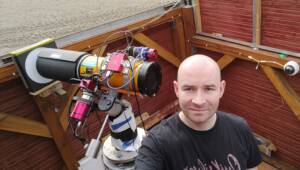

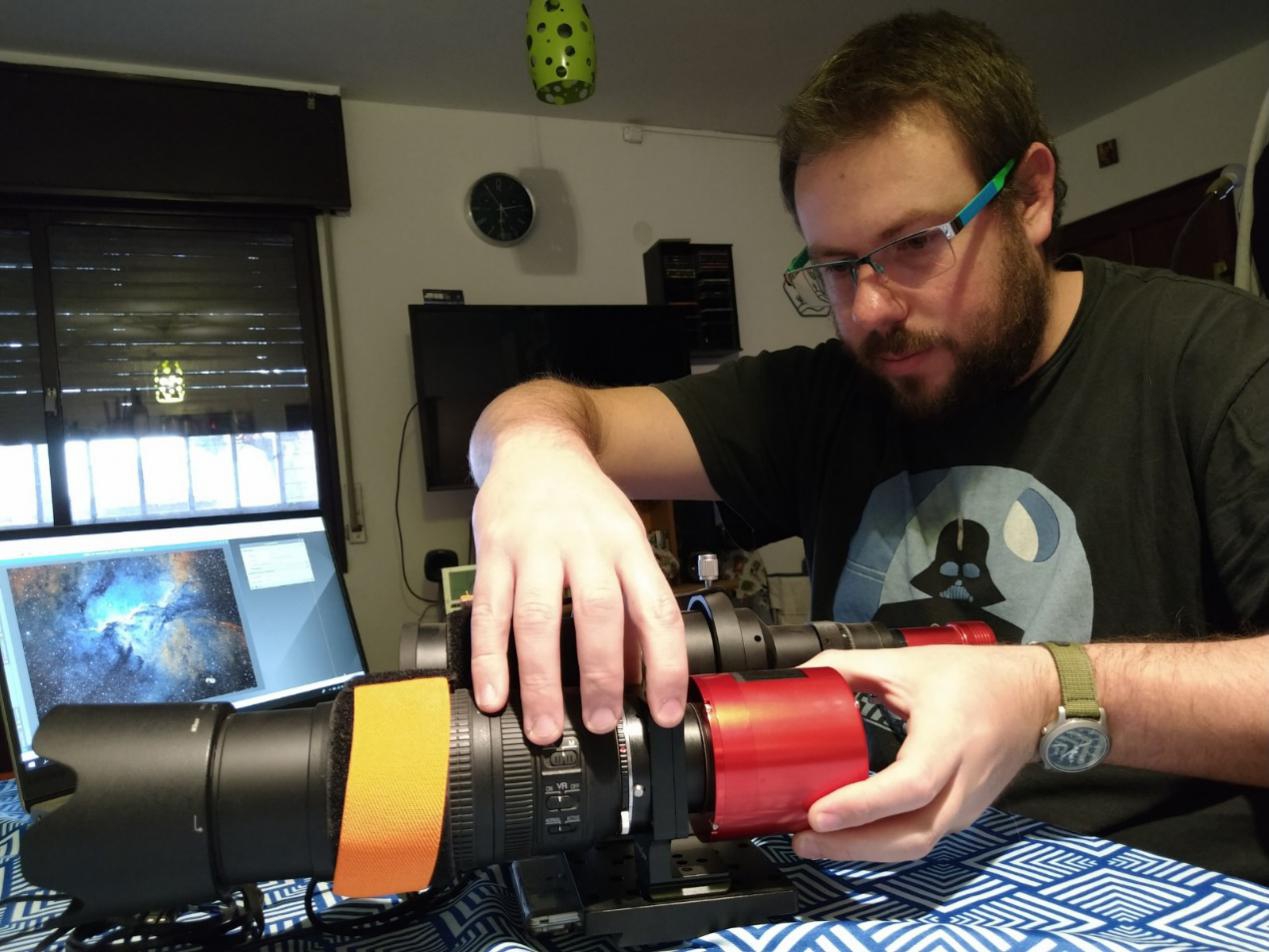












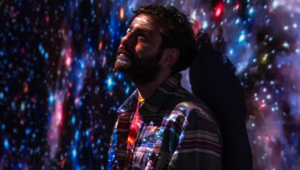
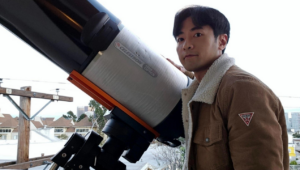
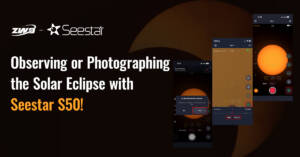
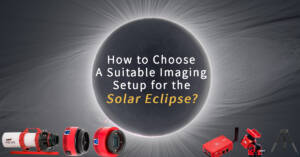

2 Comments
Pench
You are a genius!
Congratulations!
ZWO ASI Camera
Thank you.